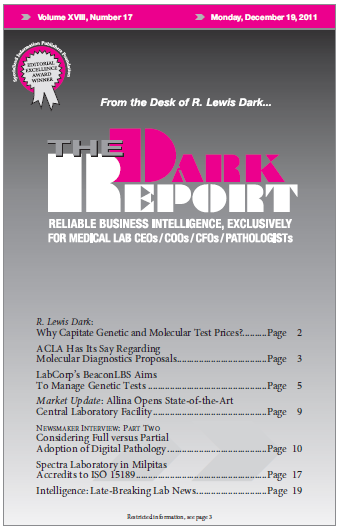CEO SUMMARY: BeaconLBS is a new business created by Laboratory Corporation of America. It says it wants to help health insurance plans manage molecular diagnostics and genetic testing. BeaconLBS is now recruiting other clinical labs to join its network and is meeting with payers to offer its lab test pre-authorization services. What may make BeaconLBS …
LabCorp’s BeaconLBS Aims To Manage Genetic Tests Read More »
To access this post, you must purchase The Dark Report.


